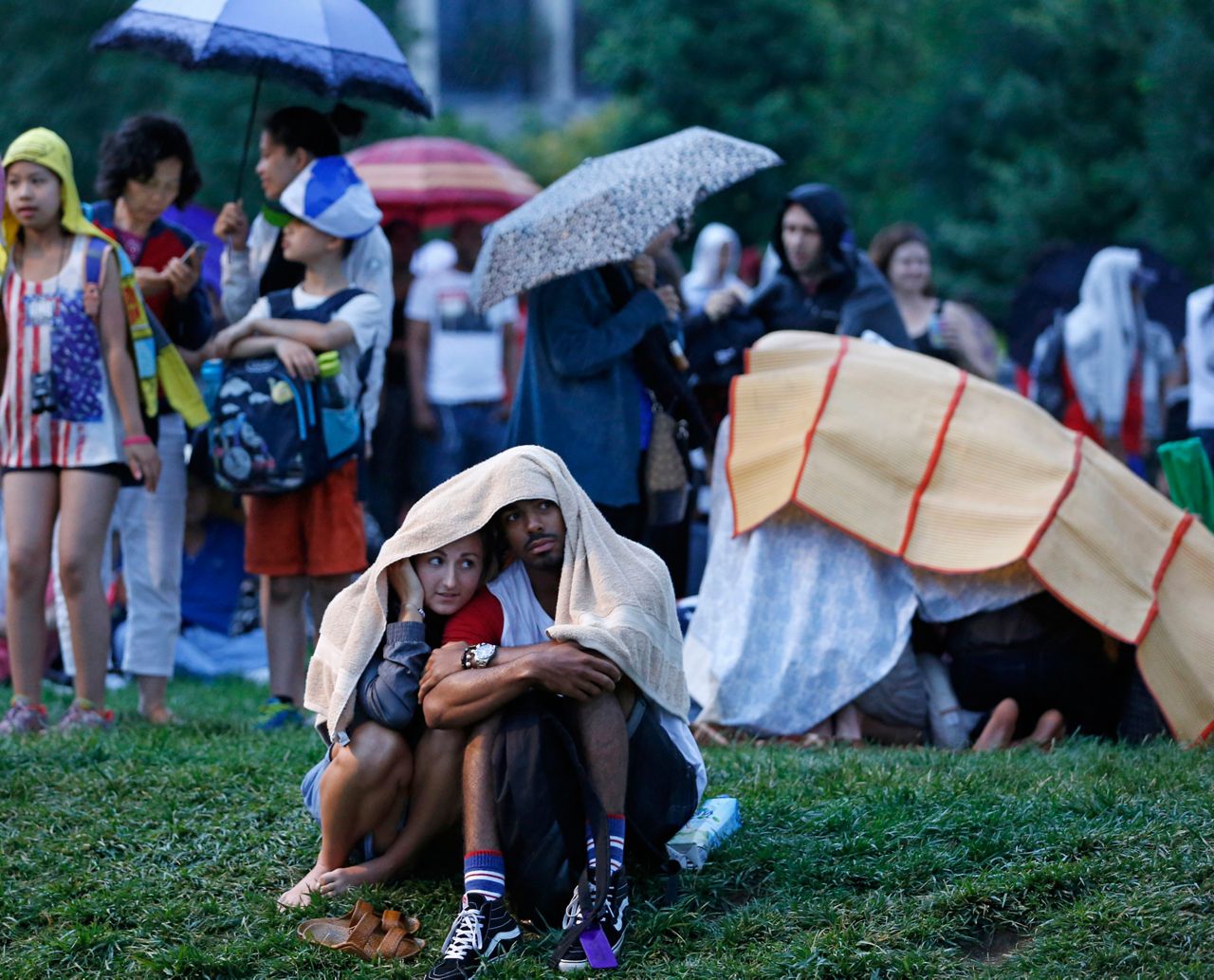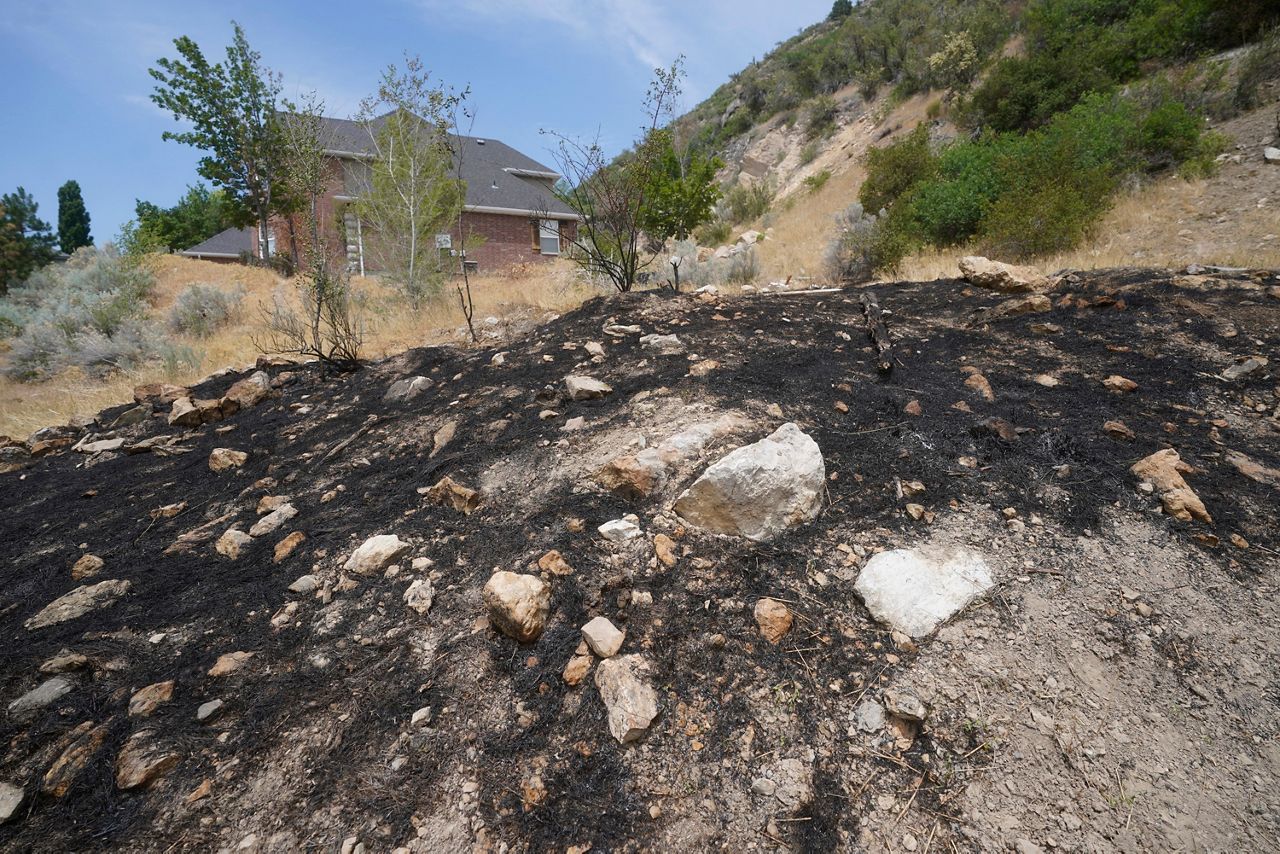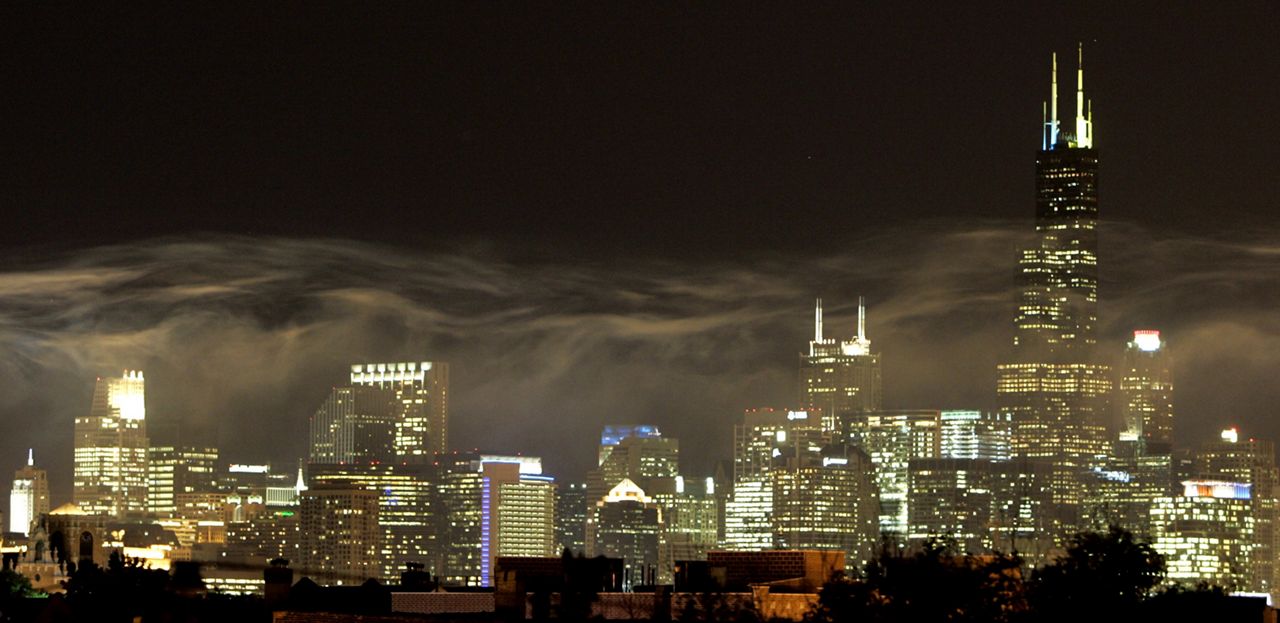The Fourth of July is right around the corner, and many people are looking forward to those spectacular firework shows. However, everything from rain, wind and humidity can impact not only if you can launch those rockets into the sky, but also what they will look like.
Ideal weather
To have the best show, we need clear skies, light winds and low humidity. Extra moisture in the air can distort the colors and make them less vibrant.
Less humidity also means we can enjoy the show a little more because we don’t feel sticky.
Other weather conditions can also impact how a show goes.
Wind
We need to have the right amount of wind. If the wind is too light, smoke from the fireworks might not clear quickly enough, affecting how well you can see the fireworks. Smoke can remain stagnant in calm air and reduce air quality, as well.
Too much wind can blow smoke or embers to the ground, endangering people.
Smoke from a fireworks display at Chicago’s Navy Pier filters through the skyline on wind currents from Lake Michigan. (AP Photo/Charles Rex Arbogast)
Rain and lightning
Light rain is okay when it comes to fireworks, as long as they are covered or in waterproof bags. A wet fuse will not light.

A couple improvises by hovering beneath a towel during a brief rain shower while waiting in Brooklyn Bridge Park for the start of a fireworks display on the Fourth of July, Monday, July 4, 2016, in New York. (AP Photo/Kathy Willens)
Of course, storms and heavy rain often lead to canceled or delayed shows. Lightning can pose a major threat, sometimes striking unlit fireworks. You also become a target for the bolts during a thunderstorm.
Drought
Drought conditions can also cause problems. The fallout from fireworks can spark fires when there’s a lot of dry vegetation.
Each year, fireworks spawn many thousands of fires, both big and small.

A burnt hillside caused by fireworks in Provo, Utah. (AP Photo/Rick Bowmer)
If there is a bad drought happening in your area, it is best to avoid setting off fireworks. Often, local authorities will ban the use of fireworks in high fire risk or drought conditions.
Bigger shows might launch over bodies of water to accommodate for a drought.
So, keep these in mind if you plan on setting off fireworks. Check the forecast first and stay safe!

